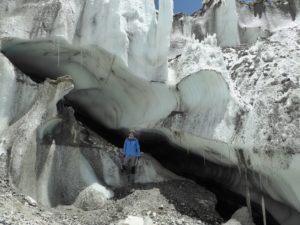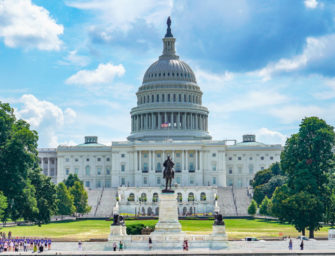The First Awardees of the Celebrate 100 Grants
With the beginning of AGU’s Centennial upon us, I am so pleased and excited to announce the first two awardees of AGU’s Celebrate 100 Grants. Centennial is about you and the science that you undertake every day. It is about inspiring all to participate, support, and advance the power of science to make the world a better place for us and for future generations. To help you do this, AGU is awarding Celebrate 100 Grants of up to $10,000 to support projects of members and nonmembers around the globe that showcase the far-reaching societal benefits of Earth and space science. Projects can take on virtually any shape and use a host of methods to promote the value of our science, the more innovative and collaborative the better. Our first two awarded projects are stellar examples of the intent of these grants—they are innovative, engaging, and collaborative.
The following excerpts from proposals summarize the two Celebrate 100 Grants awarded thus far:
One-Day Girls’ Science Day Clinic in Malawi—Rochelle Holm from Mzuzu, Malawi, Africa
“There is a gap in science, technology, engineering, and math (STEM) towards long-term development and economic drivers in sub-Saharan Africa. The gap in STEM starts early in the Malawi, Africa, educational system, as up until 4th grade there are no science and technology books or school teacher guides available. And yet, where many traditional disciplines such as religious education or language arts may borrow from Western education models, a field of study such as earth sciences offers a unique opportunity for pairing experiences with a local sub-Saharan Africa University with locally trained professionals and solutions. The objective of the 1-day girls science day clinic is to motivate the girls to stay in school and to make a career in science seem like a fun and possible option. We have offered these clinics on a small scale since 2013; for many girls it was their first time ‘doing’ hands-on science, and despite that they may live in the same city as our University.”
Community-Based Outreach in Nepal—Cameron Scott Watson from the University of Arizona

Cameron Scott Watson from the University of Arizona
“Our project aims to deliver community-focused outreach in Nepal’s Sagarmatha National Park (SNP) about the dynamics and future of Himalayan glaciers, and how this affects the local population. We are specifically targeting the Everest region of Nepal in SNP during a Walk and Talk event to be held 9th–22nd December 2018. We will walk part of the trail to Everest Base Camp, stopping at seven villages on route to present and discuss the results of past and future research activities. Our outreach project will enhance slideshow presentations by providing interactive demonstrations of research concepts.”
The creativity and breadth of these projects are impressive and exciting. Following Rochelle’s and Cameron’s examples, I am hopeful that you will be inspired to apply for your own Celebrate 100 Grant to communicate and celebrate the impacts of Earth and space science. Application details and review criteria can be found here. Will you launch a crowdsourced data rescue project? Try a creative way to make science accessible to an underserved area? Motivate the next generation of scientists? Create a network to foster increased scientific collaboration? The only limiting factor is your imagination.




Id like to know more about the Malawi Science Clinics for girls. I am a retired science teacher and geologist by training.
Thank you for interest in this project and AGU Celebrate 100 grants to learn more about the Malawi Science Clinics and the research team visit their website: http://www.mzuniwatsan.com/.